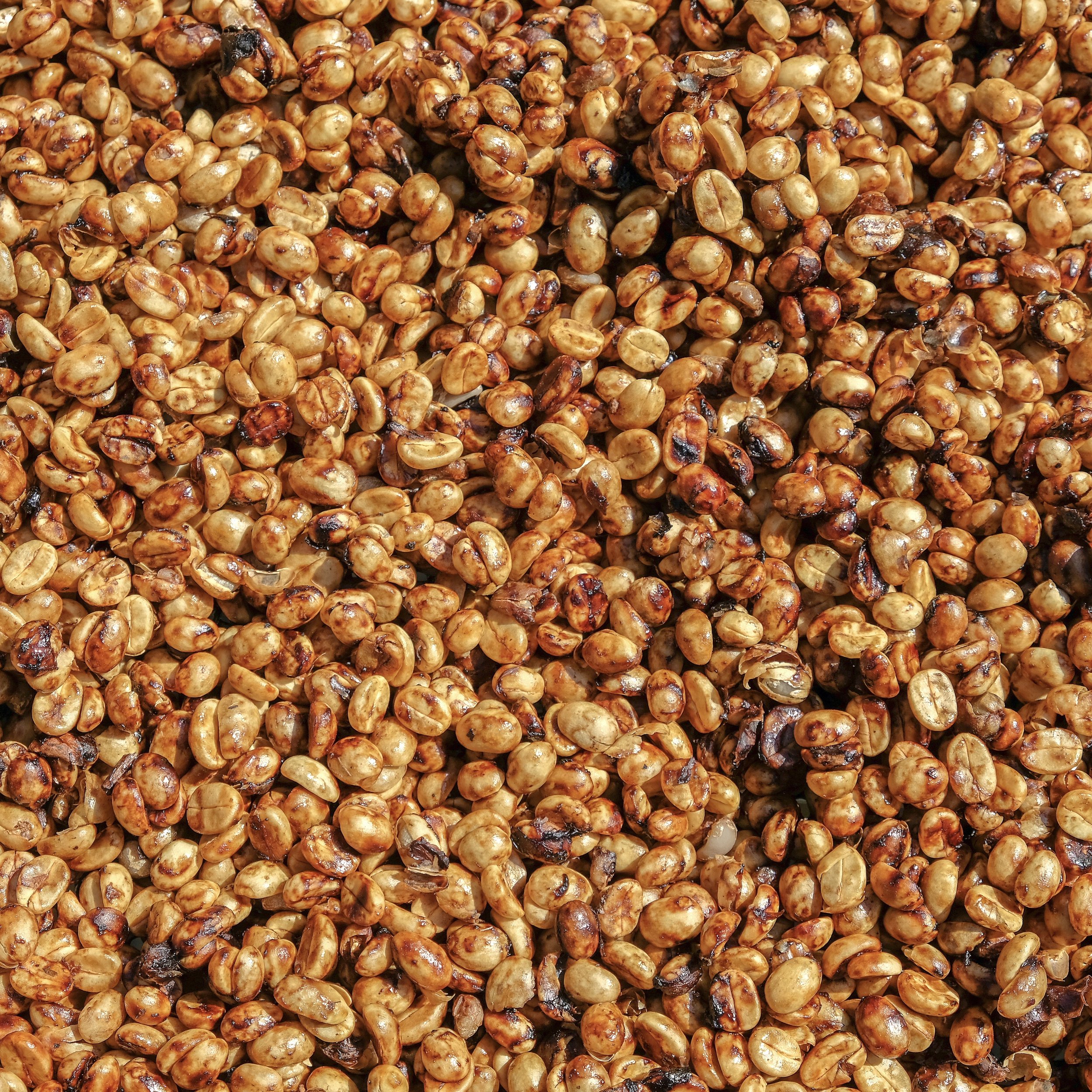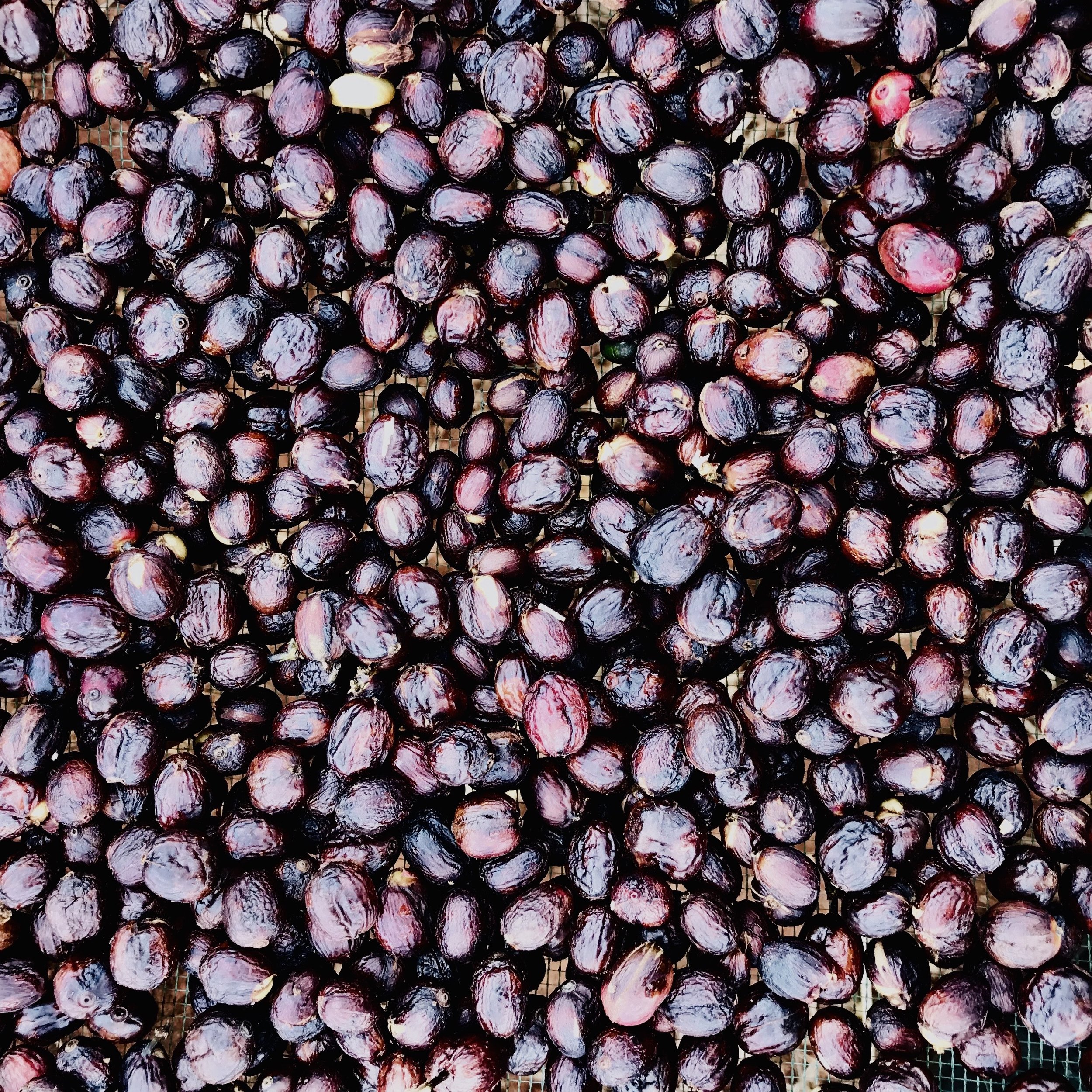Coffee Processing
Exploring Coffee Processing: Washed, Honey, and Natural Methods at MF Washing StationCoffee begins its journey as a delicious fruit, known as a coffee cherry. These cherries grow on coffee trees that are harvested every June to September in Northern Malawi. Inside this cherry is the seed, which is what we eventually roast, grind, and brew to make coffee.
The process of extracting and treating these seeds is known as coffee processing, and it is what defines the flavor of the coffee. Essentially, coffee processing is the method used to remove the fruit and mucilage from the seed, preparing it for roasting.
The method used to process coffee significantly influences its flavor, aroma, and overall quality. We work with the Tiko Coffee Collective to purchase the best quality coffee cherries and experiment with different processing methods. At the MF Washing Station in Nkhota, Northern Malawi, we specialize in three primary coffee processing methods: washed, honey, and natural. Each of these methods brings out unique characteristics in the coffee, showcasing the rich diversity of flavors that Malawi's coffee has to offer.
Washed Process
The washed process, also known as the wet process, is renowned for producing clean, bright, and vibrant coffee flavors. This method involves several meticulous steps
Harvesting: Ripe coffee cherries are selectively picked.
Pulping: The outer skin and pulp of the cherries are removed using a pulping machine.
Fermentation: The beans, still covered in a layer of mucilage, are placed in fermentation tanks for 12-48 hours. This fermentation breaks down the mucilage, which is then washed away with water.
Drying: The clean beans are spread out to dry on raised beds or patios under the sun, which can take up to two weeks.
The washed process highlights the inherent qualities of the coffee bean, such as its acidity and clarity. It is the method of choice at the MF Washing Station for those who prefer a crisp and clear cup of coffee.
Honey Process
The honey process strikes a balance between the washed and natural methods, retaining some of the fruity sweetness while also achieving a cleaner profile. The steps include:
Harvesting: Only the ripest cherries are picked.
Pulping: The outer skin is removed, but some or all of the mucilage remains on the beans.
Drying: The beans are then dried with the mucilage still attached. Depending on how much mucilage is left, the process can be categorized as black, red, yellow, or white honey, with black honey having the most mucilage and white honey the least.
This method produces a coffee that is sweet and full-bodied with a complex flavor profile. At the MF Washing Station, our honey-processed coffees are a favorite among those who enjoy a balanced cup with both fruity and caramel notes.
Natural Process
The natural process, or dry process, is the oldest method of coffee processing and is known for its rich, fruity flavors. This method involves:
Harvesting: Fully ripe cherries are carefully picked.
Drying: The cherries are spread out to dry in the sun with the fruit still intact, a process that can take up to four weeks. During this time, the cherries are regularly turned to ensure even drying and to prevent mold.
Once dried, the beans are mechanically hulled to remove the dried fruit and parchment layer.
Natural-processed coffees from the MF Washing Station are bold, with intense fruit flavors and a heavier body, perfect for those who love a robust and complex coffee experience.
We use the same coffee varieties and cherries across all our processing methods, but typically, Noel in Junju handles the natural processing, while Lyson in Nkhota oversees the washed and honey processing.
At the MF Washing Station in Nkhota, Northern Malawi, we are dedicated to producing high-quality coffee using these three distinct processing methods. Our station is uniquely fed by fresh, gravity-fed spring water from high in the mountains, ensuring the purest water is used in our processing, which enhances the quality and taste of our coffee. The collaboration with the Tiko Coffee Collective, a group of smallholder farmers from Nkhota and Junju villages, ensures that we have access to some of the finest coffee cherries in the region.By utilizing washed, honey, and natural processes, we are able to offer a diverse range of coffee profiles, each with its own unique characteristics. This variety not only highlights the versatility of Malawian coffee but also caters to the diverse preferences of coffee lovers around the world.
In conclusion, the methods used at the MF Washing Station are more than just techniques; they are an art form that brings out the best in each coffee bean. Whether you prefer the clean and bright notes of washed coffee, the balanced sweetness of honey-processed coffee, or the bold fruitiness of natural coffee, our processing methods ensure that there is something for everyone to enjoy. Join us on this journey and experience the exceptional flavors of Malawian coffee.






